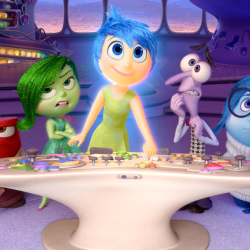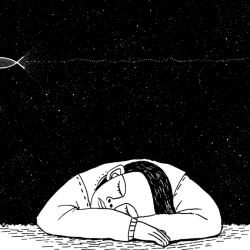There are few who would argue against 2020 being an exceptional year
But in the months since the research was published by the Smithsonian that suggested we’re living in ‘historically unhappy times’, many of us will have found ourselves repeatedly thinking it wasn’t just 2020 that was exceptional, but each of the following years as well. It seems obvious that the legacy of the Covid-19 pandemic would be profound. Not only were we subjected to massive uncertainty and daily, depressing news bulletins about death and social separation, but we’ve since felt the impact of The Great Resignation, war in Europe and more recently economic turmoil and surging inflation. There’s little doubt we live in turbulent times in a world that can feel like it’s closing in around us. Add in a daily dose of climate change, discrimination, misinformation and fake news, and you’d be forgiven for thinking all this leaves us with little to be happy about.
The latest ‘craze du jour’ is the explosive growth of AI, poised to run riot across human civilisation, destabilising the world order and taking all our jobs. Italy is the first western nation to ban ChatGPT, along with perhaps ironically, all the countries that threaten our world order; China, Iran, North Korea and Russia.
The mainstream media thrive off bad news and sensationalism. The lyrics from Don Henley’s 1982 billboard chart topper Dirty Laundry sum it up perfectly still, 40 years on. We’re a politically and socially divided society with a rife ‘cancel culture’, shutting people down on what can be unproven facts or a personality witch hunt, forcing what historically wouldn’t even have been considered news to the front pages.
This means it’s almost impossible to avoid bad news, or just the news we don’t want, or need to hear
We’re losing reasoned debate in an increasingly angry discourse, so I think we can safely rule out the media from making us happier. The government too, often the target of the angry discourse can also be ruled out. We may not be able to truly escape the endless inbound streams of negativity, but we can avoid them if we have the self-control to do so. The source of happiness can be easily drowned out when we face the pressures that life throws at us. The highs can feel so far away, we look for distractions, or accept that we’re resilient and we just carry on, often at the expense of being truly happy. But we can turn to philosophy and the early thinking of the stoics and their concept of control. They argued that we can’t always control what happens to us, but we can always decide how we react to it.
Happiness is an emotional state; invoked by positive memories, a sense of purpose or a physical or sensory experience. Immersing ourselves in any of the above not only strengthens that emotional feeling, but also provides an opportunity to refocus, closing down our exposure and subsequent physiological response to bad news or unhappy situations. It’s also proven to make us healthier.
So, we can choose to be happy and we need to give ourselves permission to make time for happiness
We should spend time enjoying what we have, not longing for the things we don’t. Not that we shouldn’t be ambitious of course, but to remind ourselves that life’s simple pleasures can be powerful motivators. Happiness is making a difference to what matters to us, and this can take the form of making other people happy through our relationships, the pursuit of a wider purpose and the things over which we have influence. The stoics said that the human qualities that allow us to succeed came down to four fundamental virtues; wisdom, moderation, courage, and justice.
Back in the real world we might start by deleting news apps and withdrawing from social media. In fact, turn off your phone and find pleasure from being present in the experience you’re in. Live through your virtues and take action on the things you can control, letting go of the things you can’t. Life will be happier and healthier, and as we learnt in 2020, life is too short to be unhappy.
Featured image: Matheus Natan / Pexels































